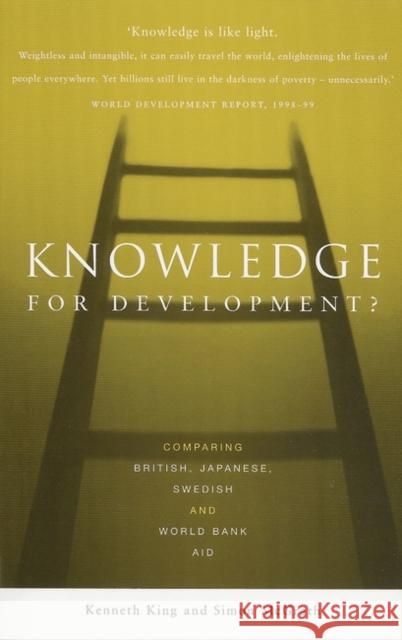Knowledge for Development?: Comparing British, Japanese, Swedish and World Bank Aid » książka
Knowledge for Development?: Comparing British, Japanese, Swedish and World Bank Aid
ISBN-13: 9781842773253 / Angielski / Miękka / 2004 / 256 str.
In 1996, the World Bank President, James Wolfensohn, declared that his organization would henceforth be 'the knowledge bank'. This marked the beginning of a new discourse of knowledge-based aid, which has spread rapidly across the development field. This book is the first detailed attempt to analyse this new discourse. Through an examination of four agencies -- the World Bank, the British Department for International Development, the Japan International Cooperation Agency and the Swedish International Development Cooperation Agency -- the book explores what this new approach to aid means in both theory and practice. It concludes that too much emphasis has been on developing capacity within agencies rather than addressing the expressed needs of Southern 'partners'. It also questions whether knowledge-based aid leads to greater agency certainty about what constitutes good development. 'New information technology has the capacity to revolutionize the delivery of development assistance, but only if accompanied by institutional changes, including a move away from centralization and top-down aid processes. In this excellent book the authors present a detailed analysis and balanced assessment of the prospects for knowledge-based aid to achieve the goal of improving aid effectiveness. Based on conceptual framework setting and a close examination of actual experience they conclude that success depends on reconceptualizing aid itself in the direction of capacity building in poor countries.'
Ravi Kanbur, T.H. Lee Professor of World Affairs, Cornell University 'Knowledge management is popular. Aid agencies talk easily of sharing stories, communities of practice and double-loop learning. But are they ready to sacrifice a preoccupation with results and a concern to disseminate 'best practice' in favour of real partnership and mutual learning across divergent networks? King and McGrath are sceptical. Their case studies and argument challenge all of us involved in the production, sharing, and use of knowledge.'
Simon Maxwell, Director of the Overseas Development Institute (ODI)"











